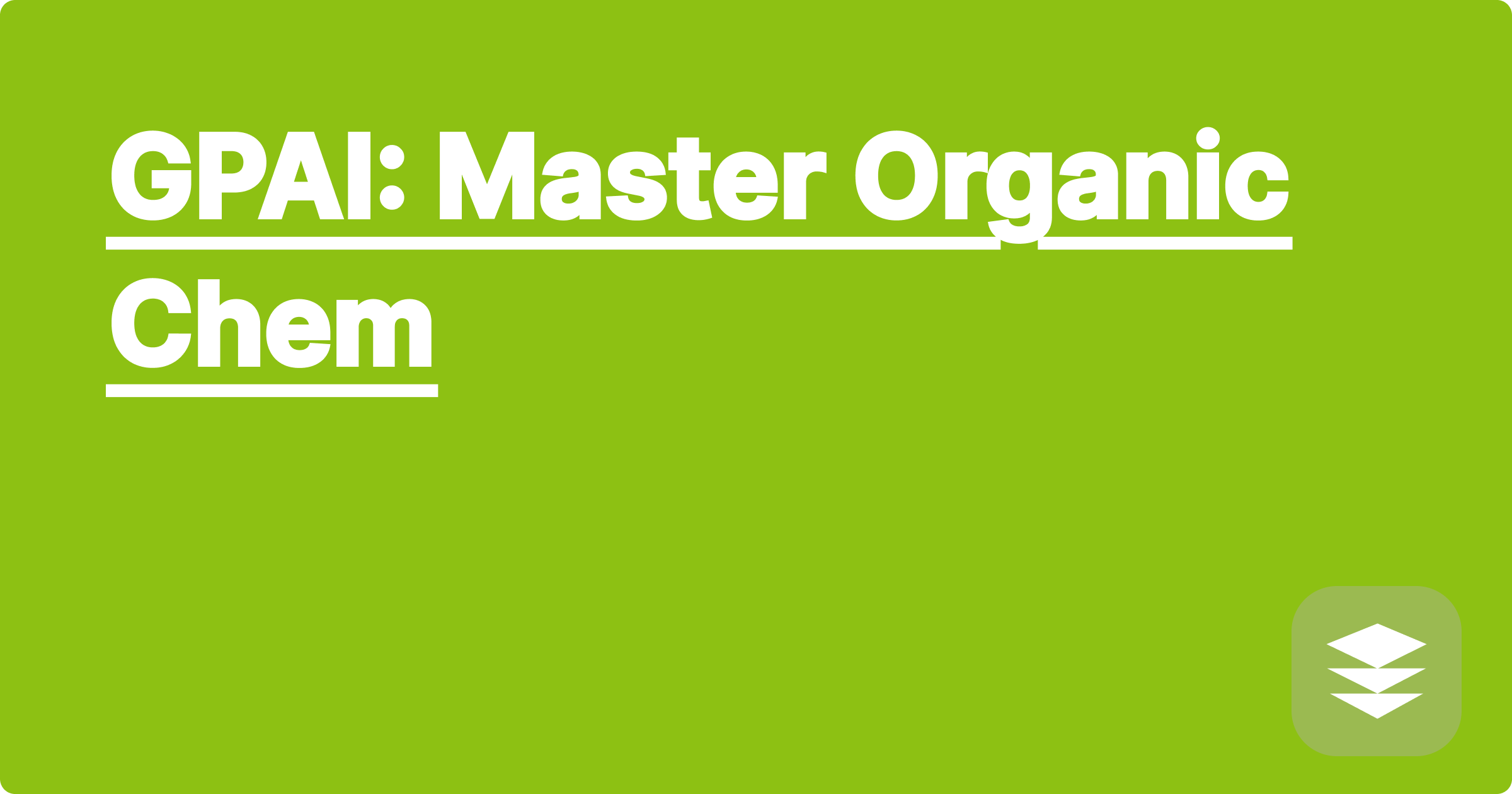
Organic chemistry, often dubbed the “weed-out” course, presents a formidable challenge for many STEM students. Its intricate concepts, vast reaction mechanisms, and complex nomenclature can feel overwhelming. However, the rise of powerful AI tools like ChatGPT, Claude, and Wolfram Alpha offers a new avenue for mastering this challenging subject. These tools can provide personalized tutoring, generate practice problems, and offer step-by-step explanations, effectively democratizing access to high-quality learning resources.
This new paradigm in learning is particularly relevant for STEM students and researchers. The ability to quickly grasp and apply organic chemistry principles is crucial for success in fields ranging from medicine and pharmaceuticals to materials science and chemical engineering. AI-powered learning can significantly accelerate the learning process, allowing students to focus on deeper understanding and critical thinking rather than rote memorization. Furthermore, researchers can leverage these tools to explore complex reaction pathways, predict product outcomes, and accelerate the discovery of novel compounds.
Organic chemistry is challenging due to several interconnected factors. The sheer volume of information, including functional groups, reaction mechanisms, and nomenclature rules, requires significant effort to memorize and internalize. Furthermore, understanding the underlying principles governing chemical reactivity requires spatial reasoning and the ability to visualize three-dimensional molecular structures. Many students struggle to connect abstract concepts with real-world applications, further hindering their understanding. The traditional learning approach, often relying on passive lectures and rote memorization, can be ineffective for many learners. This is where AI can step in to bridge the gap and provide a more personalized and engaging learning experience.
AI tools like ChatGPT, Claude, and Wolfram Alpha can be leveraged to address the specific challenges posed by organic chemistry. ChatGPT and Claude excel at providing conversational tutoring, answering questions, and explaining complex concepts in a clear and concise manner. They can be used to generate practice problems tailored to specific learning objectives, providing immediate feedback and guidance. Wolfram Alpha, with its powerful computational engine, can be invaluable for predicting reaction outcomes, calculating equilibrium constants, and visualizing molecular structures. By combining the strengths of these different AI tools, students can create a comprehensive and personalized learning environment.
To begin using AI for organic chemistry, start by identifying your specific learning needs. Are you struggling with nomenclature, reaction mechanisms, or spectroscopic analysis? Once you have pinpointed your areas of weakness, you can tailor your AI queries accordingly. For example, you can ask ChatGPT to explain the SN1 reaction mechanism or generate practice problems involving Grignard reagents. You can use Wolfram Alpha to visualize the three-dimensional structure of a complex molecule or predict the product of a multi-step synthesis. As you work through practice problems, use the AI tools to check your answers and provide feedback on your reasoning. This iterative process of questioning, practicing, and receiving feedback can significantly enhance your understanding and retention of the material.
Consider the reaction between an alkyl halide and a nucleophile. You can ask ChatGPT to explain the difference between SN1 and SN2 reactions, providing examples of each. You can then use Wolfram Alpha to visualize the transition states involved in these reactions, gaining a deeper understanding of the stereochemical implications. For instance, you could ask: “What is the product of the reaction between 2-bromobutane and sodium hydroxide?” ChatGPT can explain the mechanism and predict the major product, while Wolfram Alpha can provide structural information and relevant physical properties. Another example could be using ChatGPT to generate a synthesis pathway for a specific target molecule, followed by using Wolfram Alpha to verify the feasibility of each step and calculate the overall yield.
To maximize the benefits of AI in your organic chemistry studies, it is essential to adopt a proactive and strategic approach. Don’t rely solely on AI for memorization; instead, focus on understanding the underlying principles. Use AI to clarify confusing concepts, generate practice problems, and test your understanding. Actively engage with the material by asking questions, formulating hypotheses, and seeking feedback. Treat the AI as a tutor, not a crutch. By combining AI-powered learning with traditional study methods, you can create a synergistic learning experience that significantly enhances your understanding and retention of the material. Remember to always verify the information provided by AI tools with reputable sources like textbooks and peer-reviewed publications.
In conclusion, AI tools offer a powerful new approach to mastering organic chemistry. By leveraging the capabilities of ChatGPT, Claude, and Wolfram Alpha, students can overcome the challenges posed by this complex subject and achieve academic success. Embrace these tools as valuable learning companions, and explore their potential to unlock a deeper understanding of the fascinating world of organic chemistry. Start experimenting with these tools today and discover how they can transform your learning experience.